Discover Informed Decisions Independent Financial Planning & Money Podcast
Informed Decisions Independent Financial Planning & Money Podcast

Informed Decisions Independent Financial Planning & Money Podcast
Author: Paddy Delaney (Parent, Educator, Qualified Planner & Executive Coach)
Subscribed: 486Played: 24,630Subscribe
Share
Description
Take control of your financial future by joining us on Ireland's Independent & award-winning Investment & Retirement Planning Podcast, with Paddy Delaney (QFA RPA APA).
Join Paddy & guests as they cut through the noise, nonsense and smoke-n-mirrors of financial services in Ireland. We want you to avoid costly mistakes and to make informed financial decisions in your investments and retirement planning.
Paddy Delaney QFA RPA APA
Join Paddy & guests as they cut through the noise, nonsense and smoke-n-mirrors of financial services in Ireland. We want you to avoid costly mistakes and to make informed financial decisions in your investments and retirement planning.
Paddy Delaney QFA RPA APA
348 Episodes
Reverse
In this week's podcast, I talk about investing your pension at 50. Turning 50 is a wake-up call for your pension. It’s not about panic - it’s about planning smart. Here’s what matters most: Key Points: • At 50, your goals shift — you’re closer to retirement, but growth still counts. • Review your pension funds now: what’s in equities, bonds, or cash? • Rebalance gradually. • Diversify — global funds, low costs, and no guesswork. • Check old company pensions. Consolidate only if it saves on fees or boosts control. • Understand your tax position — up to 25% tax-free lump sum (max €200k). • Know your retirement routes: ARF for flexibility, annuity for certainty. • Independent financial planning helps avoid big mistakes — and stress! I hope it helps.
In this week’s podcast, I unpack the growing issue of unregulated investments in Ireland — from headline-grabbing collapses to the hidden risks facing everyday investors. Discover why so many well-intentioned savers were caught out, what to watch for, and how to protect yourself from high-risk “opportunities” that promise too much. Key points: The rise and fall of high-profile unregulated firms like Arena Capital, BlackBee, and Custom House Capital Why ordinary savers — not just speculators — were drawn into risky investments How commissions and incentives can cloud financial advice The lack of Central Bank protection and investor compensation for unregulated products Common fee structures and hidden costs investors often overlook Practical steps to verify if an investment is regulated Simple rules to stay safe and avoid losing hard-earned savings Disclaimer The content of this site including blogs and podcasts is for information purposes only. Everybody’s financial situation is different and the content we share on our site and through podcasts may not be applicable to you.
In this week’s podcast, we dive into why so many investors underperform the very funds they invest in. Drawing on Morningstar’s Mind the Gap 2025 research, we explore how “magpie behaviour” — chasing shiny new investments, panicking in downturns, or tinkering too much — quietly erodes long-term wealth. The evidence is clear: bad behaviour can cost over 1% per year, compounding into massive losses over time. But the gap isn’t inevitable. This episode shares practical steps to help you capture more of the returns you deserve — and avoid being the magpie. Key Points Morningstar “Mind the Gap 2025” shows investors lose ~1.2% per year due to poor timing and bad behaviour. Chasing shiny investments (like tech, AI, or thematic funds) often backfires. ETFs and bond funds show wider performance gaps due to frequent trading. Behaviour matters more than markets or fees — discipline drives long-term returns. Five ways to close the gap: Automate contributions, rebalancing, and withdrawals Work with an advisor to stay disciplined Focus on low-cost, globally diversified core holdings Keep “fun money” small if dabbling in niche funds Build a margin of safety into your financial plan Disclaimer
Would you rather build a financial future lined with velvet cushions, or one pieced together with spud bags?? Too many households in Ireland—and globally—are entering retirement without the savings needed to sustain their lifestyle. In this episode, I explore the uncomfortable truth behind retirement readiness, from the dominance of State Pensions to the worrying lack of planning, and why delayed gratification and early saving matter more than ever. Key Points: State Pension reliance: In Ireland, over half of workers without private pensions expect to rely mainly on the State Pension (€15,100 p.a. in 2025). Research insights: CCPC data shows 26% of adults are completely unprepared for retirement; many regret starting pensions too late or don’t understand how they work. Spending reality: Retirement spending often follows a U-shaped “smile”—high early, lower mid-life, higher again with health costs. But reductions are often enforced, not chosen. Global parallels: US data mirrors the same challenge—most middle-aged households have modest pension balances, and Social Security dominates retirement income. Cultural habits: Rising instant-spending patterns today may make cutting back tomorrow feel like deprivation. Solutions: Start saving early, define retirement goals, regularly review pension performance, seek professional advice, and prepare for Auto Enrolment (2026). The takeaway: Financial freedom in retirement won’t just happen—it must be planned for deliberately, and the time to act is now.
In this week's episode, I chat with Dan Haylett, Director of TFP Financial Planning in the UK, author of The Retirement You Didn’t See Coming, and host of the Humans vs Retirement podcast. Dan has built his career around helping people prepare for retirement in a way that goes far beyond the numbers, focusing on the human side of life after work. Together, we explore: Why retirement is less a maths problem and more a human challenge. The dangers of the “blank canvas” problem and why day 182 of retirement can be the most difficult. Dan’s five pillars of a thriving retirement: purpose, identity, relationships, structure, and wellbeing. The concept of memory planning—turning money into meaningful experiences rather than just numbers on a page. Why modern retirees are “first-generation retirement rebels” and how to overcome the fear of spending after decades of saving. I hope you find this episode, full of insights for anyone thinking about how to make the most of their second half of life—financially, emotionally, and personally. Paddy What Will I Do All Day? by Patrice Jenkins — a short, self-published book full of stories and insights from retirees, which Dan describes as a "wonderful punchy read" TFP Financial Planning Dan's LinkedIn Disclaimer The content of this site including blogs and podcasts is for information purposes only. Everybody’s financial situation is different and the content we share on our site and through podcasts may not be applicable to you. The articles, blogs and podcasts are not investment advice. They do not take account of your individual circumstances, including your knowledge and experience and attitude to risk. Informed Decisions can’t be held responsible for the consequences if you pursue a course of action based on the information we share
In our last podcast, we celebrated Fran's incredible achievement of amassing a €2 million pension pot through decades of disciplined saving and investing. Some who read it were inspired, some were envious, and others said "I don't bloody need €2m pension pot"! Today, we're asking a different question entirely: Do I actually need a €2 million pension pot to retire comfortably? And you'll see why I suggest the following are appropriate pension pots to fund a 'comfortable' retirement lifestyle; c€500k if you plan to retire in your mid 60's c€1m if you would like to retire in your mid 50's These may seem like a luxury questions, but are the most important aspects in our retirement planning in Ireland. Because here's the truth: knowing how much you need to spend in retirement is key to knowing how much you need to save for your pension pot Ireland. Disclaimer: Seek professional advice before taking any course of action.
Today, we’re diving into the real-life(ish) story of Fran – a regular guy who built a €2 million+ pension pot and retired at 55. No big lotto win. No magic investment hacks. Just smart use of Ireland’s pension system, discipline, and a few skipped car upgrades! Fran started young, contributed consistently, and maximised every bit of tax relief and employer matching he could get his hands on. He invested for growth, kept his cool through market crashes, and stuck to the plan. Over 30 years, a €350,000 net contribution turned into a €2 million pension pot. We walk through: • Exactly how Fran built that pot • How he drew income tax-efficiently from 55 onwards • How he used the ARF to stay flexible and keep control • And how he left a legacy worth millions – without giving half of it to Revenue If you're working in Ireland and want financial independence on your own terms, Fran’s journey is a blueprint worth paying attention to. No fluff, no jargon – just a straight-talking guide to building your future wealth and freedom. Let’s dive in and see what we can learn from Fran’s €2M success story. I hope it helps. Disclaimer The content of this site including blogs and podcasts is for information purposes only. Everybody’s financial situation is different and the content we share on our site and through podcasts may not be applicable to you. The articles, blogs and podcasts are not investment advice. They do not take account of your individual circumstances, including your knowledge and experience and attitude to risk. Informed Decisions can’t be held responsible for the consequences if you pursue a course of action based on the information we share
Welcome to Informed Decisions Podcast, where we bring you expert insights for Irish investors and retirees. Today, we have a rip-roaring guest joining us - Bill Bengen, the financial planner who literally wrote the book on retirement withdrawals. Back in 1994, Bill's groundbreaking research established what became known worldwide as the "4% rule". This was the cornerstone of retirement planning, that suggests you can safely withdraw 4% of your portfolio annually without running out of money. But here's where it gets interesting for our Irish listeners: Bill has been revisiting his own work, and his latest research suggests that retirees today might actually be able to take 5% from their Approved Retirement Funds over multiple decades, not the traditional 4% many have been following. For those managing ARFs here in Ireland, this could be game-changing news. We know how crucial it is to balance enjoying your retirement years while ensuring your money lasts - it's that delicate dance between living well today and having security tomorrow. Bill's going to walk us through exactly why he believes this adjustment makes sense in today's market conditions, and how to think about implementing this approach with your own ARF strategy. Whether you're already drawing from your ARF or planning for that transition, this conversation could reshape how you think about your retirement income. Let's dive in with the man who started it all! I hope it helps. Paddy Delaney QFA RPA APA Disclaimer: Seek professional advice before taking any course of action. Disclaimer The content of this site including blogs and podcasts is for information purposes only. Everybody’s financial situation is different and the content we share on our site and through podcasts may not be applicable to you. The articles, blogs and podcasts are not investment advice. They do not take account of your individual circumstances, including your knowledge and experience and attitude to risk. Informed Decisions can’t be held responsible for the consequences if you pursue a course of action based on the information we share
In this episode of the Informed Decisions podcast, I chat with Rob Halligan and Scott Ashmore, co-founders of Shuttle, a platform aiming to democratise access to private equity and venture capital investments. The conversation dives into the fundamentals of private markets, how they differ from public equity investing, and why early-stage companies often turn to private capital over traditional bank loans. Rob and Scott shed light on the risk-reward profile of venture investing, the importance of diversification, and how Shuttle helps everyday investors participate in an asset class typically reserved for institutions and high-net-worth individuals. The discussion also explores the mechanics of venture funding - from pre-seed to Series D rounds - highlighting how company valuations are set and the expected timeframes for returns. With Central Bank of Ireland authorisation, Shuttle operates a quarterly investment model, allowing users to gain exposure to a portfolio of vetted startups. The duo outline their vision for the platform, its future expansion into VC fund access, and how it aligns incentives by charging only a modest annual fee and a performance-based profit share. Key Points: Private vs Public Markets: Private equity involves investing in unlisted companies, offering potentially higher returns but greater risk and illiquidity. Venture Capital Basics: VC is a subset of private equity focused on early-stage, high-growth startups, structured around funding rounds (e.g., Seed, Series A-C). High Risk, High Reward: Venture capital returns follow a power law distribution—few winners generate most of the returns. Diversification is Key: Investors should aim for 50+ holdings to reduce risk; Shuttle structures this via quarterly “drops” of 2–3 companies. Accessibility: Shuttle enables retail investors to participate in venture deals from as little as €250 per quarter. Platform Model: Investors pay €250/year plus a 10% fee only on realised profits, aligning platform and investor interests. Liquidity & Exit: Returns typically take 5–10 years; Shuttle is exploring secondary markets to improve interim liquidity. Market Trends: Private companies are staying private longer; institutional data points to retail access as the next frontier. Educational Focus: Shuttle supports investor understanding through simplified UX, content, and risk-appropriate onboarding. I hope it helps JoinShuttle.com Grit by Angela Duckworth – recommended by Rob Halligan. A book about the power of passion and perseverance in achieving success. Outliers by Malcolm Gladwell – recommended by Scott Ashmore. It explores what makes high achievers different, focusing on the factors that contribute to success. Disclaimer
If you’ve ever looked at your pension statement and thought, “What does this actually mean?” You’re not alone. In this episode, #338, we’re cutting through the jargon and making sense of Defined Benefit (DB) pension schemes, especially for Irish employees and retirees. These schemes can offer incredible long-term value, but many people don’t fully understand how they work, what they’re worth, or what decisions they might face around them. Whether you’re still paying into a DB scheme or left it behind years ago, we’ll walk you through the key numbers, why these pensions are so unique, and how to approach big decisions, like whether to transfer out. It’s all about helping you understand, appreciate, and protect one of your most valuable financial assets. I hope it helps. Disclaimer The content of this site including blogs and podcasts is for information purposes only. Everybody’s financial situation is different and the content we share on our site and through podcasts may not be applicable to you. The articles, blogs and podcasts are not investment advice. They do not take account of your individual circumstances, including your knowledge and experience and attitude to risk. Informed Decisions can’t be held responsible for the consequences if you pursue a course of action based on the information we share
For the past 8 years, I’ve been making the case that most investors, particularly those who can tolerate volatility, should avoid Lifestyle investment strategies in pensions. It’s been a lonely stance, with little to no mainstream coverage, even though investor feedback on my analysis was consistently positive. Back in early 2024, I shared updated research on Lifestyle and Default Investment strategies used by pension funds in Ireland. The results were clear: even after more than a decade of strong market performance, investors who took the ‘Do It For Me’ route, defaulting to cautious, de-risking strategies, ended up with significantly poorer outcomes than those who chose a more hands-on, equity-focused approach. Was I mad? Or missing something? It appears not. Disclaimer The content of this site including blogs and podcasts is for information purposes only. Everybody’s financial situation is different and the content we share on our site and through podcasts may not be applicable to you. The articles, blogs and podcasts are not investment advice. They do not take account of your individual circumstances, including your knowledge and experience and attitude to risk. Informed Decisions can’t be held responsible for the consequences if you pursue a course of action based on the information we share
This week I flashback to a podcast from 2021! While it is a few years old its a common and important question. Key takeaways How big your pension should be when you start drawing down income How big your pension should be at various stages of your life What you can do if it's not as big as you would like it to be! How to live 14.9% longer! I hope it helps! Disclaimer
In this week's podcast I chat with Dr. Daniel Crosby. He discusses the evolution of behavioral finance over the past eight years, reflecting on the growing acceptance and understanding of the field. He shares insights from his latest book, 'The Soul of Wealth,' emphasising the importance of health, happiness, and meaningful spending. The discussion also covers the role of community in financial behavior, the impact of delayed gratification, and the future of wealth management in an AI-driven world. Crosby highlights the necessity of practical applications in financial education and the importance of understanding one's relationship with money. Dr. Daniel Crosby is a psychologist, author, behavioral finance expert and asset manager who applies his study of market psychology to everything from financial product design to security selection. Key takeaways Behavioral finance has gained significant traction in the last eight years. Investors today are better educated and more disciplined than in the past. The focus of behavioral finance is shifting from avoiding mistakes to enhancing well-being. Health is a crucial component of wealth and happiness. Experiences often bring more joy than material possessions. Delayed gratification is a powerful tool for achieving long-term goals. Community and social connections enhance financial well-being. AI will play a significant role in the future of wealth management. Practical applications of financial wisdom are essential for real change. Creativity is vital for personal and professional growth. I hope it helps! The Soul of Wealth: 50 reflections on money and meaning Daniel's Linkedin Disclaimer
In this week's podcast #334 I take a look ARFs If you google 'best ARF Fund in Ireland' today, you will get many results. The first few are of course paid-for, sponsored adverts from firms who want your clicks (and are paying handsomely for them!). There are then quite a few other firms who have written about this 'best ARF fund in Ireland' topic. This week I share a very short piece which shows the actual outcomes of a scenario where one invested in different funds, portfolios and companies over the past decade or more, and what we can learn from it. And if anyone needs a reminder, an ARF is an Approved Retirement Fund. It is what happens to most of our personal pensions when we start drawing income from them, if we have not chosen an annuity pension. More on all this here if you want a refresh! Disclaimer
In this week's episode, I explore crucial financial planning lessons for Irish families, highlighting examples where small oversights led to significant tax bills. Discover how one family's misunderstanding of Ireland's Dwelling House Exemption resulted in an unexpected €77,000 tax liability, and how another family's mismanagement of the Small Gift Exemption cost them over €65,000. Learn essential strategies for gifting, saving, and inheritance planning, and understand why precise adherence to tax regulations, supported by expert advice, is key to safeguarding your family's financial legacy. Good intentions aren’t enough - strict compliance with Irish tax law is essential. Document and complete transactions properly - incomplete paperwork can lead to significant taxes. The Small Gift Exemption (€3,000 annually) must involve actual yearly transfers - accumulating gifts without documentation won't satisfy Revenue. Seek professional financial and legal advice early to avoid costly errors in wealth transfer and inheritance planning. Understand clearly defined tax exemptions like the Dwelling House Exemption - missing even one condition can result in major unexpected taxes. Hope it helps! Disclaimer
In episode 332 of the Informed Decisions Podcast, Paddy speaks with Glen Gaughran, Director and Head of Business Development at Independent Trustee Company (ITC). With nearly two decades of experience overseeing thousands of self-administered pension schemes, Glen offers insight into how the pension environment in Ireland is evolving and what individuals and business owners need to know. We explore the significant regulatory changes impacting Irish pensions, including the closure of executive and single-member schemes under the IORP II directive. Glen explains how the government’s temporary relaxation of funding rules for PRSAs in 2023 and 2024 offered a window of opportunity; allowing employers to contribute well beyond traditional limits, and how that door has since closed in January 2025, when contributions became capped at an individual’s salary level. We also compare PRSAs and Master Trusts from a planning and tax perspective, highlighting the trade-offs between contribution limits, inheritance outcomes, and drawdown flexibility. It’s an essential discussion for business owners trying to optimise their pension funding while avoiding tax traps and regulatory missteps. Key Insights Regulatory changes have ended executive one-member schemes, pushing attention toward PRSAs and Master Trusts. In 2023–2024, PRSAs allowed virtually unlimited employer contributions, making them highly attractive for late-stage funding. As of January 2025, employer contributions to PRSAs are capped at 100% of salary, significantly reducing flexibility. Master Trusts still allow actuarial-based contribution limits based on salary and years of service, offering an alternative path. PRSAs allow the full pension value to be inherited on death, while Master Trusts may require most of the fund to be used to purchase an annuity. Strategic planning around salary levels, timing, and long-term drawdown goals is now essential for maximising pension efficiency. Hope it helps.
Informed Decisions Podcast | Episode 331 In this insightful episode, Paddy engages with Dr. Gregg Lunceford - retirement researcher, Certified Financial Planner®, and author of Exit from Work: What Will the New You Look Like? -to explore the evolving concept of retirement. Gregg discusses the emotional and psychological aspects of transitioning from traditional employment, emphasising the importance of planning for a fulfilling "third age" of life. He offers valuable perspectives for those in Ireland contemplating retirement or a career pivot, highlighting strategies to navigate this significant life change beyond mere financial considerations. Key Takeaways Retirement is a transition, not a destination Gregg emphasises that retirement today is less about stopping work and more about reshaping purpose and lifestyle in your later years. Identity and purpose need planning too Many retirees struggle not financially, but psychologically. Planning for how you’ll stay engaged, socially connected, and purposeful is just as crucial as financial readiness. Partial retirement is rising Gregg discusses the growing trend of phased retirement and encore careers, where individuals continue to contribute professionally in more flexible, meaningful ways. Ireland’s demographic shift mirrors global trends The Irish workforce is aging, and like in the US, people are living longer and working differently. Gregg’s insights help contextualise these changes locally. Retirement success is holistic True retirement readiness includes emotional well-being, social networks, mental stimulation, and health - not just a pension fund or lump sum I hope it helps! Gregg's book - EXIT FROM WORK: What Will The New You Look Like? eBook : Lunceford, Gregg: Amazon.co.uk: Books Gregg's book recommendation - Loaded: Money, Psychology, and How to Get Ahead without Leaving Your Values Behind Disclaimer
In this week's podcast, 330, I take a look at Gillen Markets. Gillen Markets have built a solid reputation as investment managers and advisors over the past decade and a half, led by founder Rory Gillen. They reportedly manage and advise on over €600m for c.500 families. They made the headlines last week, having announced that they were selling their business to Quilter Cheviot, a UK and Irish based Discretionary fund manager, for an undisclosed sum. As these things always do; it piqued interest in terms of the consolidation of yet another firm, but also in Gillen Markets own Gillen Market Fund (GM Fund). So we are sharing a few thoughts on; - Market consolidation going on in Ireland - Analysis of the GM Fund itself (performance, allocation and fees) I hope it helps. Paddy Disclaimer
In this week's podcast I talk about what's on a lot of people's minds - the markets. As many expected, the media ran amock with the 'Liberation Day' announcements, and the resultant panicked actions of some investors led to the markets falling (as they do, a lot, temporarily!). Last Friday it seemed that every post I saw on Linkedin was by an advisor saying something to the effect of 'Don't worry your little head about the markets - we'll be fine'. As advisors, our intent in saying such things is generally always positive, however we don't generally always get that across effectively! Most investors are well-educated and know what is going on in the world, so rather than talk down, perhaps we should express more empathy and less condescension?? Maybe something to the effect of, 'This is bloody terrible' or 'I'm an advisor and I hate market declines'!? Disclaimer
In this week's podcast I chat with Kevin Carter, founder and CIO of EMQQ, investors in the emerging market technology sector. A really interesting conversation, which I hope you find helpful Key topics: What EMQQ does Kevin's approach Future of Emerging Markets Non Traditional Way to Invest in Emerging Markets China and India Kevin T. Carter is the Founder & Chief Investment Officer of EMQQ Global, including EMQQ, FMQQ, and INQQ. While he considers himself an active “value” investor first and foremost, he has collaborated with Princeton economist and indexing legend, Dr. Burton Malkiel, for more than 20 years. EMQQ Global is a San Francisco-based investment management and research firm focused on the Emerging and Frontier Markets Technology Sector. Disclaimer


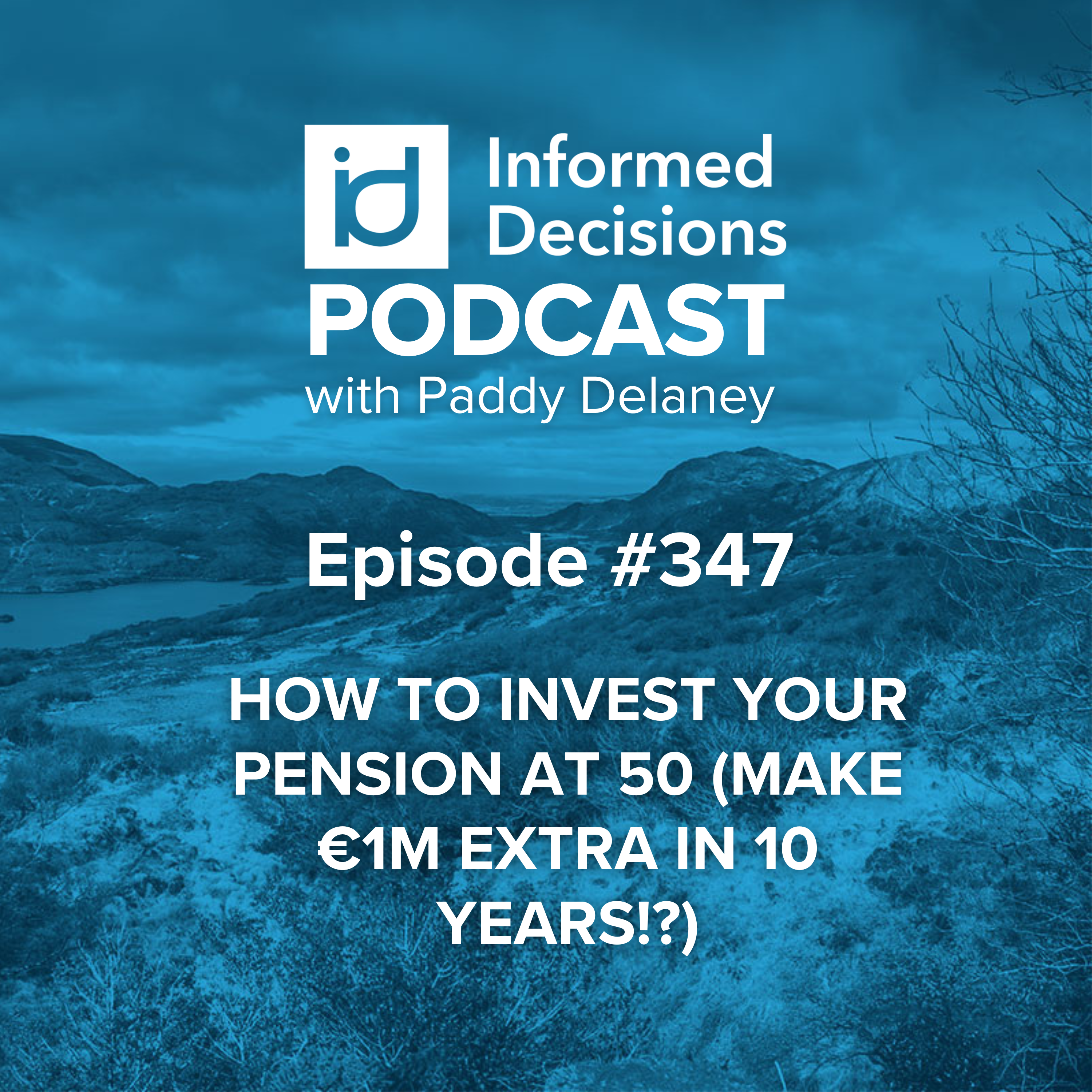
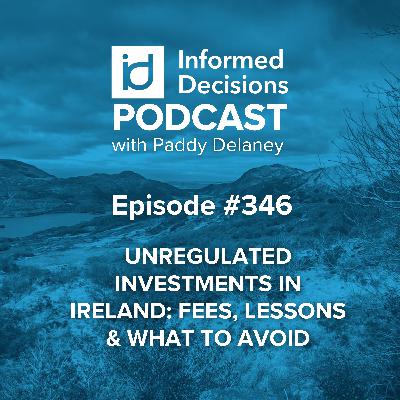


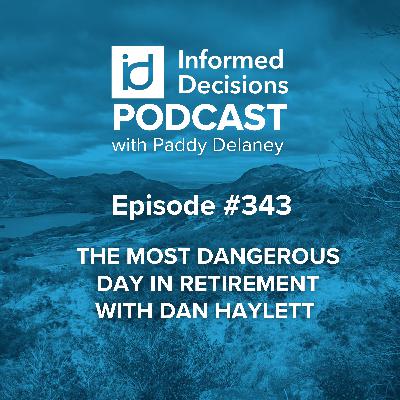

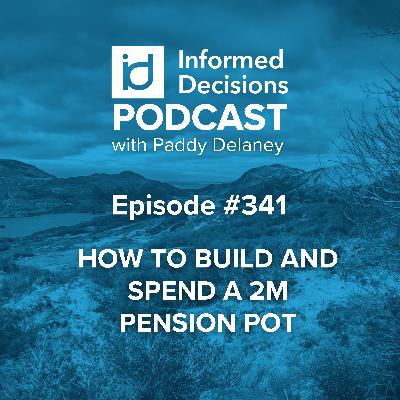
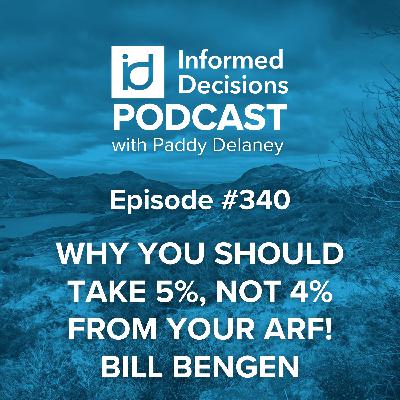

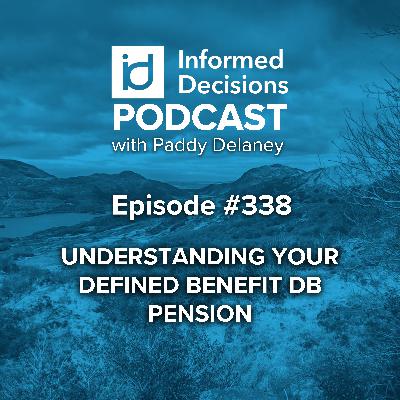

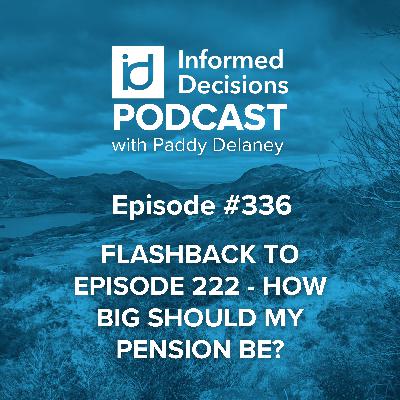
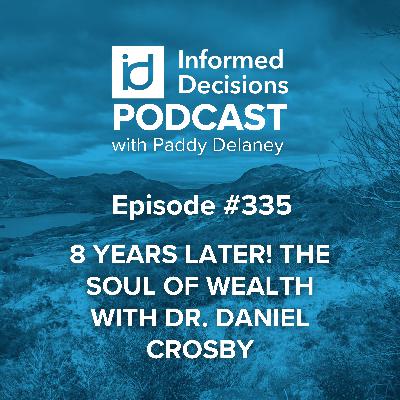
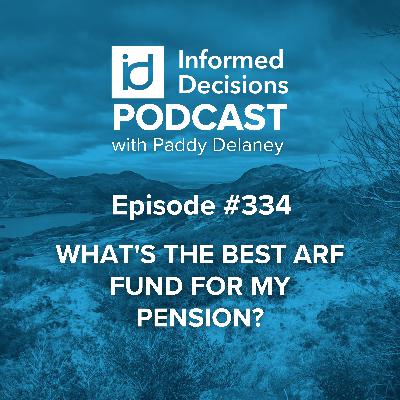


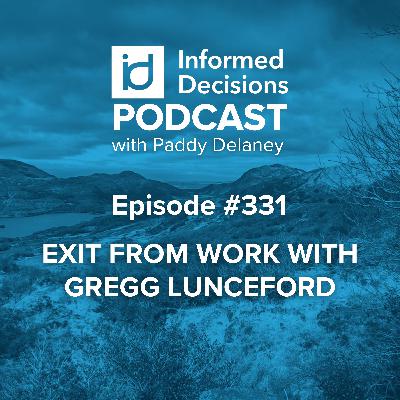
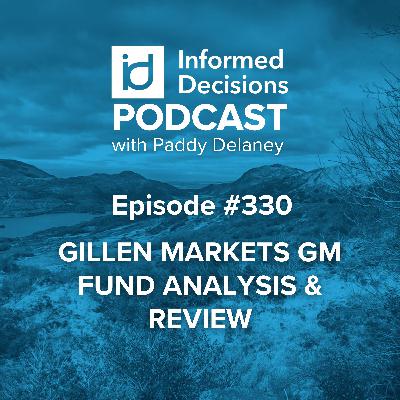
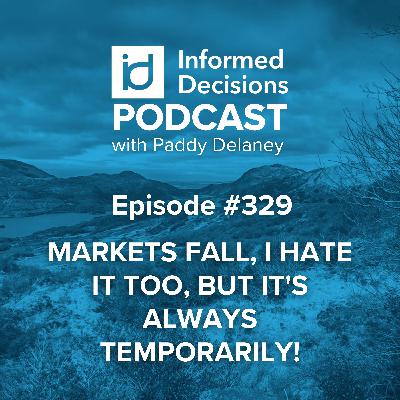
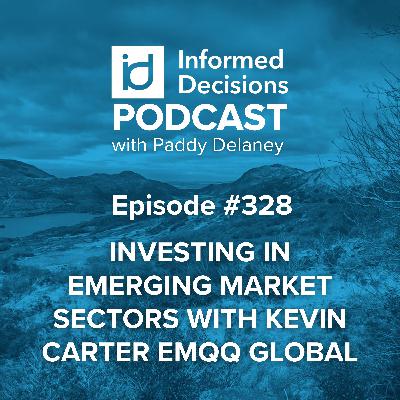



had a little giggle 🤭,I drive a honda
disappointed it becoming paid service for podcast
Just found your podcast! Very informative the topics are explained well and very interesting.
Good Podcast, only started listening to you lately, very informative
Brilliant podcast Paddy as usual. Mike
Super series great information in all your podcasts. while be I being specific to Ireland the information and comonsence is usable anywhere. great to have an indpendant mind providing information in this area.
Excellent series.. very accessible.